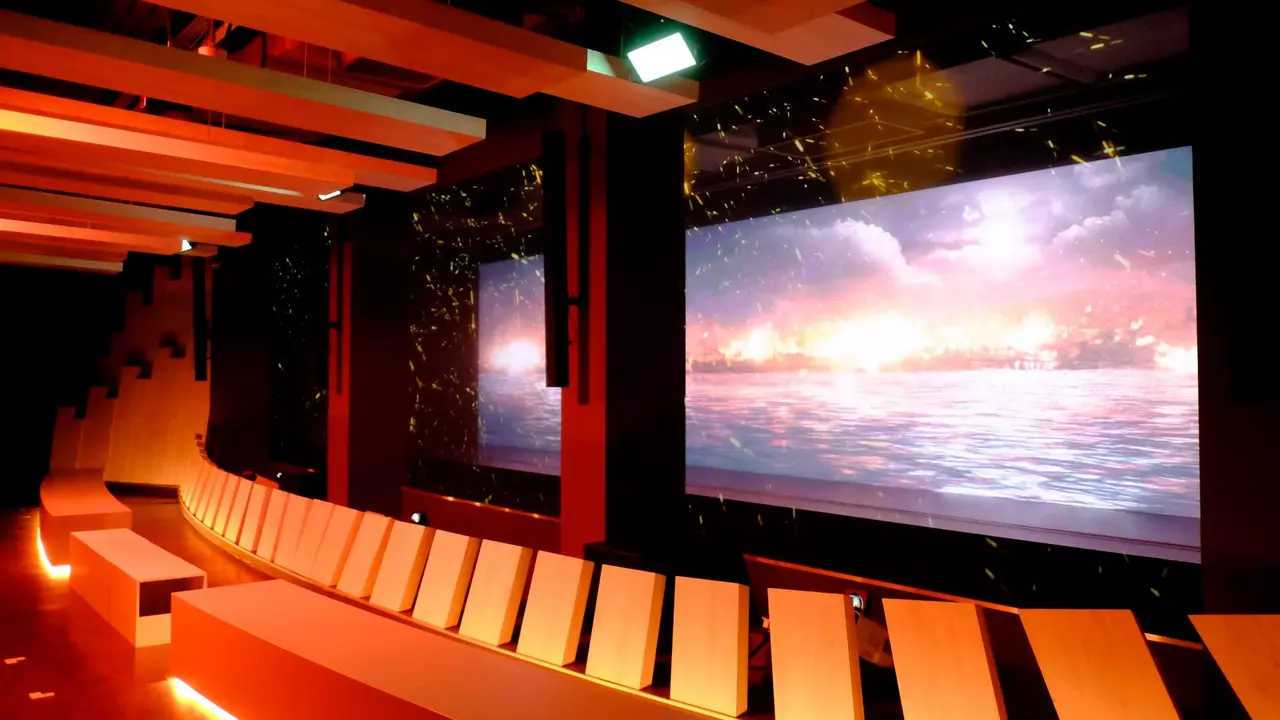d&b Time travels as Singapore celebrates Bicentennial.
The Singapore Bicentennial is a commemoration and celebration of the two hundredth anniversary of Sir Stamford Raffles, who founded modern Singapore in 1819. As part of the commemoration, Fort Canning Park is now the site of From Singapore to Singaporean: The Bicentennial Experience. This immersive, multi-sensory journey comprises two parts: Time Traveller, a captivating hour-long indoor cinematic show, and Pathfinder, an outdoor trail featuring eight interactive pavilions and installations.
The creation, building, and operation of the Singapore Bicentennial Experience were awarded to Kingsmen Exhibits Ltd. with a creative team led by Co-Creative Directors Beatrice Chia-Richmond and Michael Chiang. Singapore-based show design-company Ctrl Fre@k was tasked with providing an impressive yet discreet sound solution for the project Time Traveller and Pathfinder.
The Time Traveller cinematic experience, which takes place in several rooms displaying Singapore’s transformation over seven hundred years, takes visitors through five powerful acts, each of which required its own unique sound design.
“Our company was brought on board to deliver a system design for the whole experience,” stated Jeffrey Yue, Director of Ctrl Fre@k. “We also did the system programming and implementation as well as provide maintenance and operation help as needed.”
Having been a longtime supporter of d&b audiotechnik products, and confident in the results achieved in the past, Yue did not hesitate to use the ArrayCalc software to design a solution for the multifaceted space.
“ArrayCalc allows us to easily determine sound coverage, predicted SPL and speaker placement, as well as weight and dimensions for the system, which was important information for this historic building,” added Yue.
Speaker rigging was a significant consideration when choosing a brand, as Yue occasionally had to change the orientation of the speaker. With the d&b audiotechnik E-Series, this was not a problem due to its rotatable horn. A lot of the design decisions were made on coverage angle and size of speaker.
“d&b has the most extensive range of smaller speakers, and I use all of the E-Series models in this project,” said Yue. “For optimum sound smoothness and coverage, we deployed a large channel count with many small speakers. This is a different approach in the Singapore market, where it’s much easier to hire large PA systems. We worked with Orbital Sound from London to rent the large quantity of smaller systems we needed.”
The main challenges for the team were in dealing with a lack of space, along with the desire to make the audio in each room as distinct as possible. Noise isolation from room to room was quite a difficult task.
“We had to minimize sound bleed from one room to the next, yet also guarantee clear storytelling with the voiceover, on top of music and effects," added Yue. "Acoustically, the venue was challenging as only minimal acoustic treatments were implemented. After all, it is a temporary installation, so no one willing to spend money and resources to isolate the rooms.”
However, Yue delights in saying that d&b still performs exceptionally well in challenging acoustic situations. With the installation running every day for thirteen hours with very little time allowed for maintenance, reliability was a major factor. “d&b has the reputation and solid build quality for such a prestigious and demanding project,” added Yue.
Yue explained that within the amplifier racks, d&b DS10 Audio Network Bridges convert the Dante audio network data into AES and then into d&b D20 amplifiers, which drive all the speakers. Twenty-four D20 amplifiers are running one hundred and forty d&b speakers over the course of eighty-eight channels of audio playback.
“It’s digital 48kHz all the way,” said Yue. “The only analog signal is from the amplifiers to the speakers with remote amplifier racks, in respective acts, hence minimizing the speaker run.”
The installation has Cat6 cable as the only infrastructure linking the control room to each of the acts and each of the scenes, across all departments.
The Complete Experience
The first stop on Time Traveller is the Atrium, an installation featuring rain, which is perceived to flow in reverse, signifying how the weather plays a role in the rise and fall of fortunes. Here E4, E5 and E6 point source speakers as well as E15X-SUBs are deployed.
The next room illustrates Singapore from the years 1299 to 1613 through a combination of live performers, a travellator, and multimedia projections and LED walls. The shape of the room made throw and horizontal coverage a problem, but this was overcome by the use of four 24C and 24CE column speakers to deliver the main frontal images. A range of E4, E5, and E6 point source speakers and B4-SUBs on the floor with E15X-SUBs flown for sound effects, deliver surround sound work.
In the Arrival, visitors are transported onto the deck of the Indiana, the ship in which Raffles sailed to Singapore in 1819. The room is dominated by a curved panoramic screen and also showcases a range of Y-Series speakers; behind the perforated cinema screen are two Y7P and two Y10P point source and Y-SUBs cover the seated audience. Additional E5 speakers are also deployed for surround effects.
For the third act, Connectivity, a 360-degree, wrap-around screen, augmented with motion, provides a cinematic look at the pace of development in Singapore between 1867 and 1941. A revolve turns the audience around the screen, so the whole design has to take into account that the video, the audience, and the audio elements all move. There are twelve units of discrete E5s with two E15X-SUBs flown above the audience.
“We found that everything could move except for the voiceover as it sounds really strange, and is difficult for people to pay attention to the narration,” explained Yue. “No matter where the audience is, the narration comes from a perceived dead center. To do that, we pan the voiceover while the audience is moving.”
In the final act, Destiny, visitors literally stand around in pouring rain under individual umbrellas with the rain representing the many storms which Singapore has weathered along the road to independence. The room features a U-shape LED wall, so the team adapted a 7.1 system, mixed in 7.1. Speakers used were E6, E8, and E 12-D, again with E15X-SUBs.
At the pathfinder, the lightbeam installation features E12-Ds and E-15X-SUBs, at the Observatory – where visitors can see how historical events around the world coincide with Singapore’s seven hundred year history, there are multiple E5s and E12X-Subs.
"We're proud to play a part in helping bring to life the important commemoration of the Singapore journey," said Yue. "The technologies and support we received from d&b helped us deliver a range of unique, flexible, and excellent sounding audio solutions for this very unique experience. This was a very rewarding project."






















